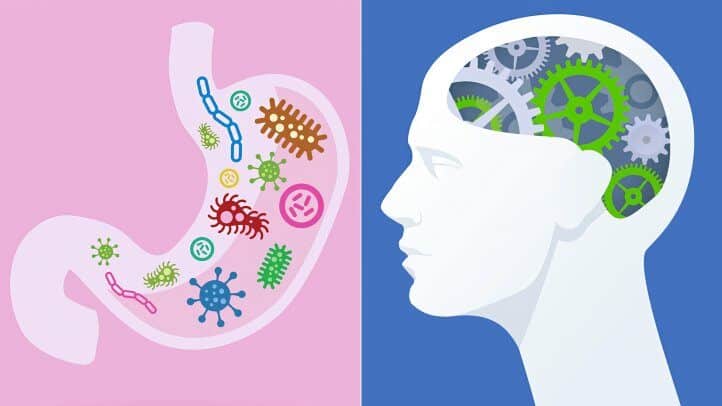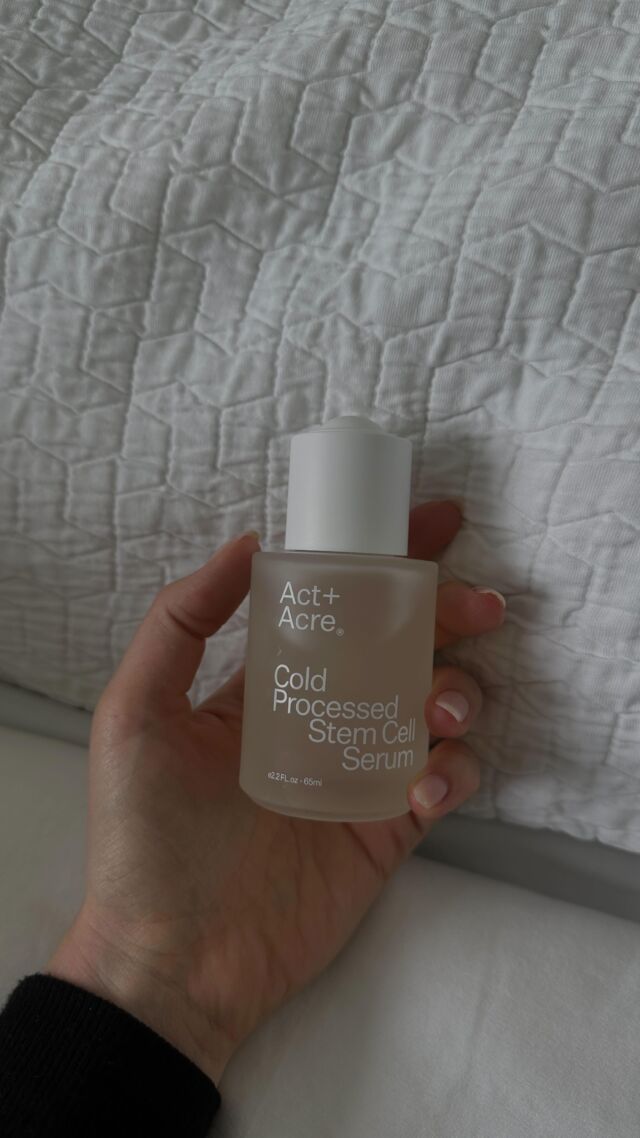Hi guys! Mercey here! One of the buzziest topics in wellness recently is gut health and the gut microbiome. And the buzz is for a good reason since there’s a ton of emerging science all about the connection between all different aspects of our health and the gut microbiome–from the brain, to hormones and the immune system–the gut is connected to it all. This all well and good (catch my pun? 😉 ) but just with any trend in the wellness world, it’s important to take the information that you learn and customize it to your unique situation (ideally with a pro’s supervision) in order to really make sense of what this type of emerging science means for your health.
It wasn’t until recently when I started working with a functional diagnostic nutritionist on my own gut health that I started to really grasp the complexity that is the gut microbiome and gut health. I mean, one of the biggest things I’ve learned is that there’s really no amount of probiotics and kombucha or kefir that can help you if you have an underlying or serious gut issue that is not being addressed. Unfortunately, it’s hard to find a doctor (unless they are functional/holistic/integrative) that will really look at your health and the gut connection from a holistic view (aka actually testing you for parasites, bacteria-good and bad, fungus, etc.) It’s not pretty or sexy to think about, but these things can lurk around in your gut and cause some serious problems if left unaddressed. Not to mention what happens when your good gut bugs get compromised due to certain circumstances like lots of antibiotic use over time.
Since this is such a complex issue, I decided to ask Jessica Ash, founder of Jessica Ash Wellness to answer some questions since she has SO much experience helping clients deal with gut-health related symptoms restore their gut health. (P.s. definitely stay tuned for Jess’ e-course launching this April all about how to eat to heal your hormones and metabolism!).
We know the gut microbiome is linked to so many aspects of our health. What is the #1 common misconception you think people have about gut health?
Jess: One of the biggest misconceptions is that the gut is delicate, when in actuality, it is very resilient and self-healing when it is given the right tools. It takes a lot of stress to break the gut down. Because your digestive system is the only place where the outer world is allowed inside the body, the body has to make sure a certain sequence of events takes place to keep it protected from damaging pathogens and toxins we are exposed to daily. So, when the gut/body is working properly, the body has a tightly controlled space where it can kill pathogens, extract nutrients and compounds it needs to fuel your cells and dispose of waste and toxins with minimal damage. Under stress, this process starts to break down and become less efficient, leading to suboptimal gut function. So you can’t “heal” your gut. You can provide it with the proper nutrition and environment and expect your body to do the rest.
What are the basic functions of “good bacteria” and “bad bacteria”? How do common issues/lifestyle habits affect this balance negatively?
Jess: You can think of our digestive system as a big long tube from mouth to anus. Much of it is mucous lined and protects the cells and tissues with a nice mucous barrier. Amongst the sensitive tissue and mucous is an ecosystem of pathogens, including a wide variety of different bacteria that perform different roles. “Good” bacteria and “bad” bacteria is a relative term because all bacteria plays a role, it’s just that some strains are more important than others in health promoting benefits. If you think of good bacteria as cops and bad bacteria as robbers, it would make sense that you would want more cops than robbers. You’re always going to have bad bacteria, what really matters is do you have more beneficial bacteria in relationship to the harmful stuff. The good stuff will provide you all types of benefit including lowering inflammation, creating nutrients like Vitamin K and certain B vitamins and promoting a healthy immune system.
The type of food we eat, people we hang around, water we drink, skin products we use, light we’re exposed to, environment we live in and even the time of the cycle we are in all impact our balance of bacteria.
For someone who’s been on rounds and rounds of antibiotics in the past and wants to restore their gut health, what are a few actionable steps they can take to help?
Jess: I think it’s important to understand that not all antibiotics are created equal. Some are broad spectrum and will wipe out many strains of bacteria, both good and bad, and then some are more targeted and not so broad. Before you assume the antibiotics are the culprit in your gut health woes, I think it’s important to get clear on what type of antibiotics you’ve taken.
Also, there’s this widespread fear of antibiotics in the health and wellness community, but we have to understand that the term “antibiotic” refers to anything that kills bacteria. A lot of us like to blame antibiotics for our gut woes, when in reality, so many of us are unknowingly exposing ourselves to “antibiotic” substances every single day. This, combined with multiple rounds of antibiotics, especially taken within the first three years of life can greatly affect gut health for life. Unfiltered water that contains chlorine, non-organic fruits, veggies and meats, seed oils and skincare and household cleaning products are just a few antimicrobial substances that we are exposed to regularly.
It is important to test your stool and understand how the antibiotics have affected your gut health before figuring out what to do about it. But, making sure you are eating as high quality foods as possible, including high quality meat and variety of fresh produce and avoiding processed food and alcohol while on antibiotics and a few weeks after antibiotics is the best way to allow your gut to recover quickly and effectively. Like I said, it is a self-healing machine.
Can you share about the emotional link to the gut (if you believe there is a link) and how our emotions and mental state can affect our gut health?
Jess: So, this is a huge topic, but put simply: our gut and brain are intimately connected via the central nervous system. This is referred to as the gut-brain axis. We have a huge nerve called the Vagus nerve that connects the brain to the digestive tract, which holds about one hundred million nerve endings. At the end of the nerve fiber, chemical substances called neurotransmitters are created. These neurotransmitters, including dopamine and serotonin amongst many others, make their way from the gut into the whole body and are responsible for many of the actions needed to maintaining homeostasis, or whole body balance. These chemical substances can affect many things including gut motility, blood flow, nutrient absorption, immune system response and the gut bacteria. Then, on the flip side, what’s going on in the brain can directly affect the gut. If there is high amounts of stress being registered by the CNS, digestive function and neurotransmitter production will be altered to allow the body to adapt to the stress.

















